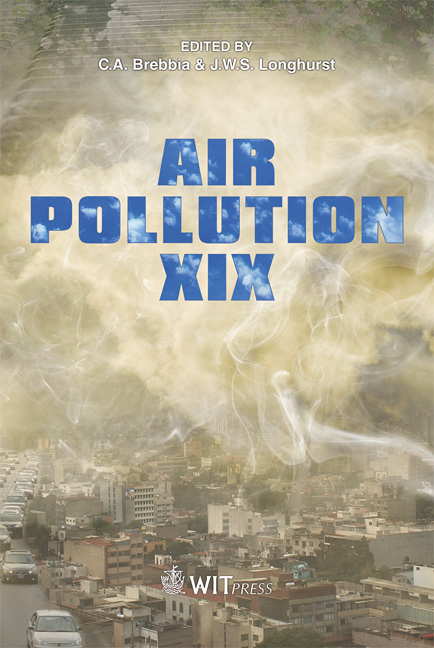Application Of Methanotrophic Biofilters To Reduce GHG Generated By Landfill In Quebec City (Canada)
Price
Free (open access)
Transaction
Volume
147
Pages
11
Page Range
387 - 397
Published
2011
Size
898 kb
Paper DOI
10.2495/AIR110361
Copyright
WIT Press
Author(s)
N. Turgeon, Y. Le Bihan, G. Buelna, C. Bourgault, S. Verreault, P. Lessard, J. Nikiema & M. Heitz
Abstract
Compared to carbon dioxide (CO2), methane (CH4) is a strong greenhouse gas (GHG) and landfills are one of the major anthropogenic sources of atmospheric CH4 produced by anaerobic degradation of organic waste. In Canada as in many countries around the world, programs and regulations are implemented to force capture and burning of landfill gas (LFG). However, when thermal oxidation (flaring or energetic valorisation) is not possible (i.e. low CH4 concentration or flowrate), microbial methane oxidation by methanotrophic biofilters represents a new technology that holds great promises for GHG reduction and air pollution control of LFG. Exploratory work done in CRIQ laboratories (Quebec Canada) allowed testing different types of mediums (organic and inorganic) for the design of methanotrophic biofilters. Following this initiative, pilot scale project was undertaken in 2009. The objective was to evaluate, using a prototype installed in a closed landfill (Beauport, Quebec City), the technical and economic feasibility of implantation of methanotrophic biofilter for the treatment of LFG. Testing protocol has been implemented over a period of 83 d (from September to November 2009). The collected data were used to evaluate conversion rates (up to 80%) and the maximum elimination capacity (ECmax = 66 g CH4/m3/h). Large-scale technology demonstration work is planned for 2011-2012 to
Keywords
methane, landfill gas, greenhouse gas, methanotrophic bacteria, biofilters, nitrous oxide





